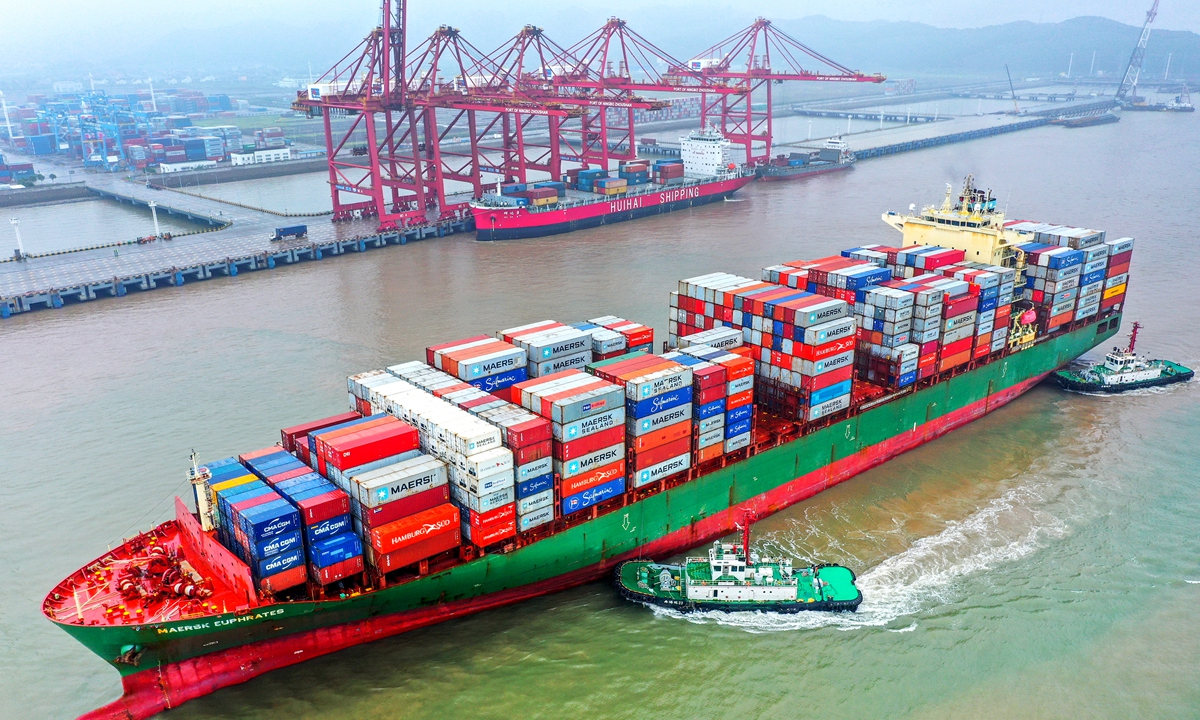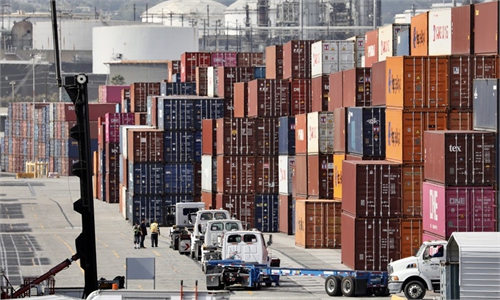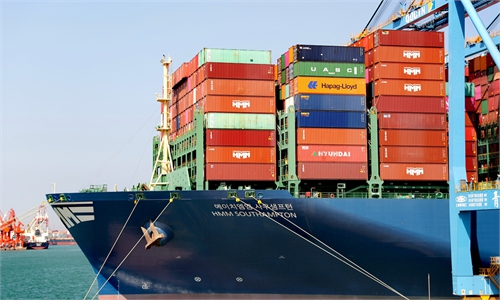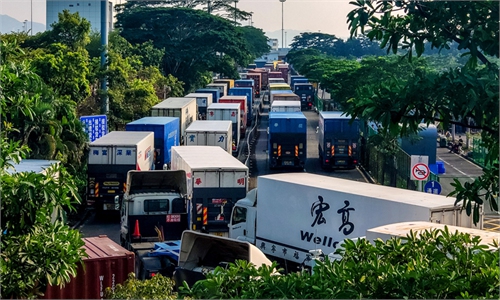Ningbo Port's oil shipping remains resilient with limited impact from pandemic measures
Chinese ports go all-out to ensure stable energy deliveries

A freight ship makes berth in Dapukou terminal at Jintang port area of Ningbo-Zhoushan port. Photo: cnsphoto
Oil shipping services remain stable and resilient with port workers operating under closed-loop management at Ningbo Zhoushan port, East China's Zhejiang Province, where the world's largest crude oil transfer and distribution base is located, to ensure smooth delivery of imported oil to other provinces.
Several industry insiders, including some at the Port of Ningbo-Zhoushan complex, which handles 99.7 percent of foreign trade crude oil that moves through the Yangtze River Delta, told the Global Times that while there may be some impact on the supply chain due to coronavirus control requirements, the situation is completely controllable.
This refutes some foreign media reports, which said that oil shipments face longer waiting times at Chinese ports after an increasing number of ships waited offshore China for unloading.
"The ship unloading volume and ship waiting time, including for crude oil, remain roughly the same as the same period in previous years," an employee of the Port of Ningbo-Zhoushan complex told the Global Times on Thursday.
In 2021, the port's ship unloading volume was around 100 million tons, a significant and stable amount despite pressure from coronavirus control requirements.
While there may be a certain impact such as more procedures to move in and out of the port, the impact is limited, especially for crude oil, which is delivered via pipelines, railways and ships instead of by trucks, the employee of the complex said.
"We are putting logistics as the top priority of our business, with contingency measures already in place, assuring normal operation at ports," the person said.
The employee said that the Ningbo-Zhoushan port is under closed-loop management, with staffers working and living at designated areas as part of the pandemic control measures.
The ship backlog at some domestic ports is relatively serious, and container ships have priority in port loading compared with vessels carrying crude oil and other commodities, Zhong Zhechao, founder of One Shipping, an international logistics service consulting company, told the Global Times on Thursday.
"When containerships face longer queues, crude oil loading and unloading is affected," Zhong said.
The impact on crude oil uploading should be short-term and controllable, the insiders said.
Coronavirus-hit regions such as Shanghai and Northeast China's Jilin Province are actually not involved in crude oil shipping, while for the Ningbo-Zhoushan port, the automation rate is high, which means that there is very little impact on operations, Lin Boqiang, director of the China Center for Energy Economics Research at Xiamen University, told the Global Times on Thursday.
"Crude oil shipping goes to different ports from those that receive containerships, which requires less manual labor," Lin said.
China's current crude oil supply is also adequate to ensure market needs, he said.
Crude oil production in 2021 reached 198.98 million tons, up 2.4 percent from 2020 and 4 percent from 2019, according to data released by the National Bureau of Statistics on January 17.
Domestic crude refining exceeded 700 million tons in 2021, up 4.3 percent year-on-year. Total output of major chemicals rose 5.7 percent year-on-year, according to data released by the China Petroleum and Chemical Industry Federation (CPCIF) in February.
Refined oil consumption increased by 3.2 percent year-on-year in 2021 to reach 341.48 million tons, official data showed.
China's dependence on oil imports dropped for the first time in the past two decades in 2021, from 73.6 percent in 2020 to 72 percent in 2021, said the CPCIF.



